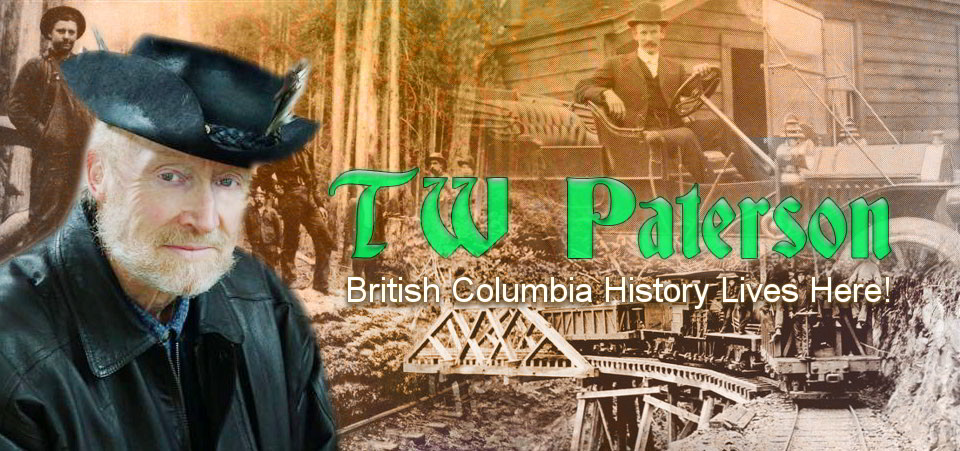The Saint and the Sinner (Part 2)
‘What did I come for?… I come for a man.’
Old Jackson, they called him, although he was scarcely 30. Unlike many others who participated in the Cariboo gold rush, he didn’t drink, smoke, swear or gamble, and treated his employees and mules with gentleness and compassion.
A queer duck, indeed.
But there was something more to Old Jackson that intrigued journalist D.W. Higgins—the distinct impression that Jackson was not a man to be trifled with, that his brooding silences marked him as a dormant volcano.
This hunch was put to the test one dismal evening in Barry’s saloon, where a number of men had sought refuge from a storm around a glowing sheet-iron stove. Among the refugees who warmed their exteriors by the stove, and their interiors at the bar, was a man known in camp as ‘Judge’ Reynolds.
Once, he’d been a lawyer of repute and influence in California, but the ‘judge’ who held court before the small gathering in Barry’s saloon that evening was a shadow of his former respectability. Primed by whisky, he pulled himself to his feet, waved his long arms about him in the manner of a politician giving a speech, and proceeded to thrill his audience with liquored eloquence as he re-enacted one of his courtroom oratories.
“It’s Tom O’Neill!”
He was interrupted in mid-sentence, and the attention of his audience diverted, by an icy gust of wind as the front door was thrown open. Framed in the opening was a snow-covered stranger of medium height, a Mexican sombrero pulled down over his face.
Glancing about the room with a stare as cold as the blizzard he stamped snow from his boots and pulled the sombrero from his head. For the first time those by the stove were able to see his features; with a shudder, a man next to Higgins whispered, “It’s Tom O’Neil!”
Higgins, whose first glance had told him that he was looking into the face of a desperado, recognized the name. Tom O’Neil was known and feared throughout California and Texas. Now, here he was, in Yale.
O’Neil strode to the stove as half a dozen chairs were hurriedly evacuated. Throwing back his overcoat, he lowered himself into the chair of his choice, gazed casually about the room, and declared, “I walked up from Hope today. It’s 16 miles, I hear, but seems to me as it was a hundred.”
No one spoke as the badman paused to warm his hands before the stove.
He continued: “What did I come for? A picnic? Not much. I come for a man.”
Ignoring the murmur that swept the room, he stared at the stove and spoke as if to himself: “Yes, I’m after a man—leastwise, he’s what some people calls a man. He threw dirt at me in California, and I’ve followed the varmint here to make him scrape it off.
“His name is—let me see—what’s his name? Oh yes, his name’s one Reynolds—Judge Reynolds, he calls hisself, I reckon—a tall, big man what has a red nose and is much given to chin music. Perhaps none of you fellows don’t know the man when you see him?”
As O’Neill spoke, Higgins fired a glance at Reynolds who, immediately upon O’Neil’s appearance, had sagged back into his chair without a sound and covered his face with his hands.
“Yes,” O’Neil continued, “he’s my meat when I finds him. Do you know what he did to me? He sentenced me to the chain gang in Stockton for six months. Wot had I done? I only put a bullet into a man’s leg as had refused to drink with me. He couldn’t a-treated me much woss if I’d killed the man. I hear he’s here. Does anyone know a man whereabouts which his name’s ‘Judge’ Reynolds?”
Not a man answered.
Leering, O’Neil scanned the assembly a second time and his gaze fell upon the cowering old lawyer. Pointing to Reynolds, O’Neil rasped, “What do you call that objeck? Give it a name. Seems like he’s got the chilblains. Then I’ll take a look for myself.”
With a single step he was before Reynolds and snatched the hat from his head. Reynolds, unable to move but for an uncontrollable twitching, had turned an ashen grey. Suddenly he raised his hands as if in prayer, when O’Neil, with a scream of rage, seized him by the throat with one hand and drew a Colt revolver with the other. Placing the muzzle to Reynolds’ head, he thumbed back the hammer.
“God!” sobbed Reynolds, “Tom—oh! Tom, you would not murder me. Say you would not, Tom. Oh! say it’s all a joke, dear good Tom. Say you don’t mean it—that’s a good boy. I’m an old man, Tom. Look at my grey hairs and spare me.”
“Curse ye,” snarled O’Neil.
“Yer had a lot of mercy on me, didn’t yer. Yer put me in prison and ruined my prospecks for life. I’ve followed yer for a thousand mile, and now I’ve got yer.”
(To be continued)
